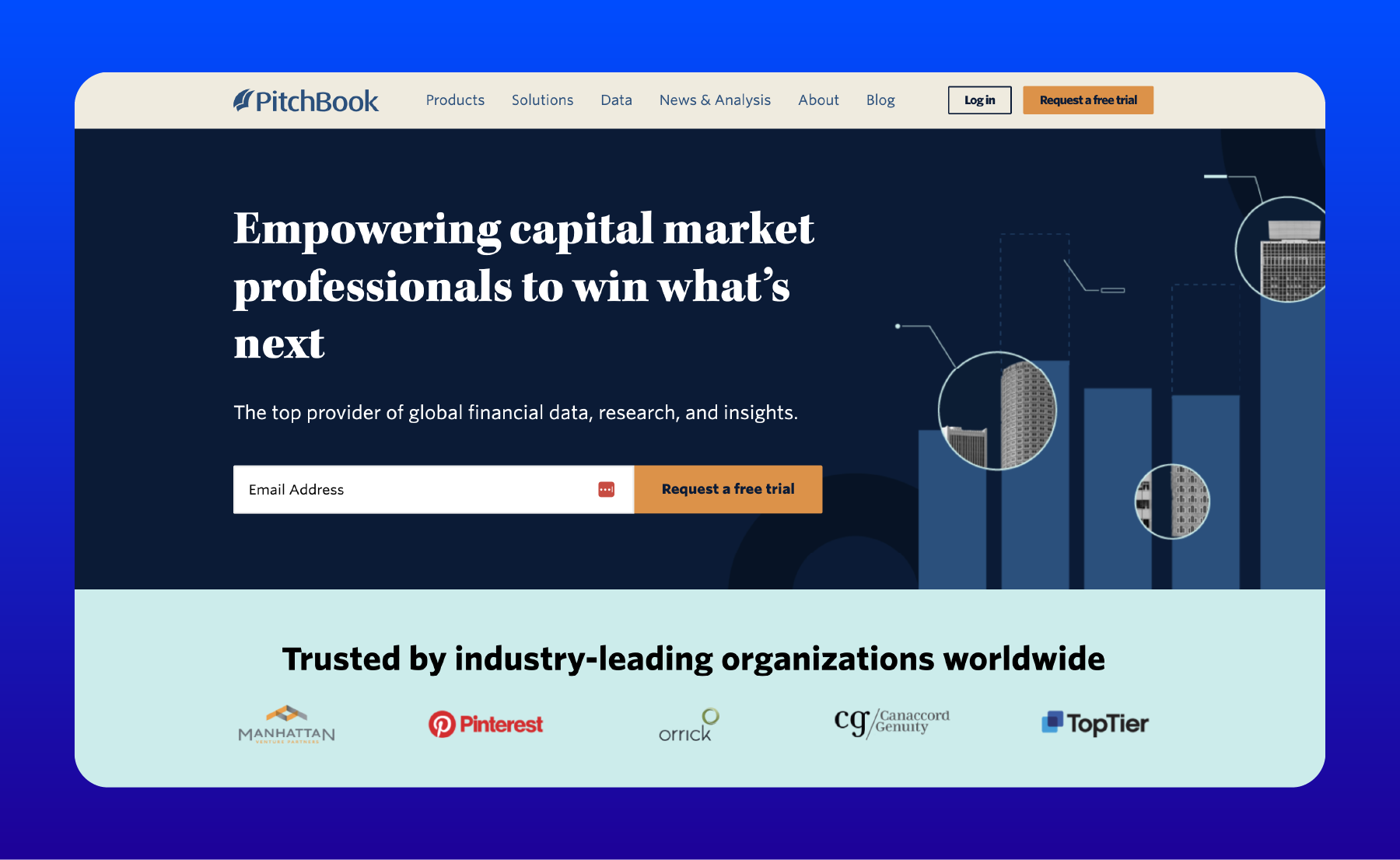PitchBook Review: Worth The Price Tag?


PitchBook is one of the most well known platforms for private market intelligence.
It provides deep insights into companies, investors, and financial transactions, making it a valuable tool for professionals in venture capital, private equity, and M&A. It can even be helpful for founders raising capital.
To help you out, in this review, we’re going to break down what PitchBook offers, where it excels, and where it might fall short.
Let’s dive in!
What is PitchBook?

PitchBook is a data and research platform designed to help professionals analyze private markets.
It aggregates financial data from thousands of sources, offering a comprehensive database of private and public companies, investment rounds, and market trends.
What Features Does PitchBook Offer?

Put simply, Pitchbook offers a database of Private Market data. When you sign up, you get access to this data for market research.
But it’s true that PitchBook is packed with features that make it a go to tool for investors, analysts, and business development teams. Here are some of its key offerings:
- Private Market Data: Extensive data on private companies, including valuations, revenue estimates, and funding history.
- Investor & Company Profiles: Detailed investor database profiles of venture capital firms, private equity funds, and businesses across industries.
- Deal Sourcing: Track mergers, acquisitions, and funding rounds in real time.
- Market Trends & Analytics: Generate charts and reports to visualize industry trends and competitive landscapes.
- Fundraising Insights: Research investment firms and their historical deal activity to identify potential funding sources.
PitchBook excels in providing high quality, well organized data, making it a powerful research tool for professionals who rely on accurate market intelligence.
Where Does PitchBook Fall Short?
While PitchBook is great for research, it isn’t designed for execution. If your goal is to book meetings, run outreach, or automate prospecting, you will need additional tools.
Key Limitations:
- No built in outreach or engagement tools
- Requires a separate CRM to manage deal flow
- Manual effort needed to extract and act on data
Because PitchBook is primarily a research tool, teams looking to generate leads and initiate conversations may find it lacking in functionality beyond data collection.
When Should You Use PitchBook?
PitchBook is best for businesses that need comprehensive research and analytics. It’s a great fit for:
- Venture capital and private equity firms conducting due diligence
- Investment bankers researching potential M&A opportunities
- Corporate development teams analyzing market trends
- Consultants looking for deep industry insights
If research and data analysis are your primary needs, PitchBook is one of the best options available.
How Much Does PitchBook Cost?

PitchBook’s costs $18,000 per year and scales from there. Some reports claim it can cost as high as $70k/year.
They do offer monthly payment options but they always require annual commitments to get started, making it somewhat cost prohibitive for smaller firms.
Wrapping Up
PitchBook is a fantastic tool for private market research, offering extensive data and analytics for investment and financial professionals.
Just be aware that if you’re looking to discover contact info, book meetings, and source more deals, you’re going to need something else. In that case, the best PitchBook Alternative is going to be Apollo.io or LeadLoft. it lacks the ability to execute outreach and engagement.
Regardless, be sure to consider your current software stack, budget, data needs, and then decide which tool that is the best fit for your team.
And if you are looking to source more deals, feel free to book a time with our team. We love helping out and we’re more than happy to share what works for us.



.jpg)
.jpg)

